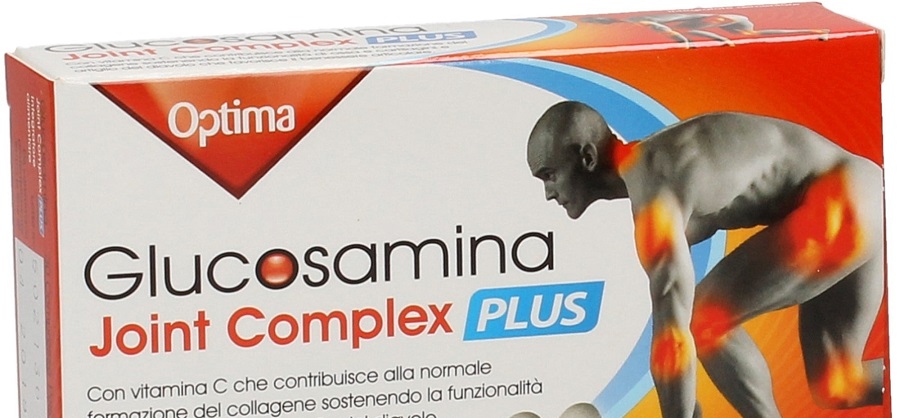Glucosamine is a natural compound that is found in the body and is also available in supplement form. It is a building block for cartilage, which is the tissue that cushions joints. Glucosamine is thought to help with the formation and repair of cartilage, and may also help reduce inflammation in the joints.
The most common use of glucosamine supplements is for the treatment of osteoarthritis, a condition that causes degeneration of the cartilage in joints. Some studies have suggested that taking glucosamine supplements may help reduce pain, stiffness and improve function in people with osteoarthritis. However, the results of studies have been mixed and more research is needed to confirm its effectiveness.
Glucosamine is typically available in supplement form as glucosamine sulfate, glucosamine hydrochloride, or N-acetylglucosamine. It can be taken orally in the form of capsules, tablets or liquid. The recommended dosage for glucosamine varies depending on the form of the supplement and the condition being treated. It is generally considered safe for most people, but it may cause side effects such as nausea, heartburn, and diarrhea in some individuals.
It is important to note that glucosamine supplements have not been evaluated by the FDA for safety and effectiveness, therefore it's important to talk to a healthcare professional before starting any supplement regimen.
In conclusion, Glucosamine is a natural compound that is found in the body and is also available in supplement form. It is thought to help with the formation and repair of cartilage, and may also help reduce inflammation in the joints. While it is commonly used to treat osteoarthritis, more research is needed to confirm its effectiveness. As always, it's important to talk to a healthcare professional before starting any supplement regimen.
What are the potential benefits of taking Glucosamine supplements?
The potential benefits of taking Glucosamine supplements include:
-
Relief of osteoarthritis symptoms: Some studies have suggested that taking Glucosamine supplements may help reduce pain and stiffness in people with osteoarthritis, a condition that causes degeneration of the cartilage in joints.
-
Improving joint function: Glucosamine may help improve joint mobility and flexibility in people with osteoarthritis.
-
Slowing down the progression of osteoarthritis: Glucosamine may help slow down the deterioration of cartilage in people with osteoarthritis, potentially helping to delay the need for joint replacement surgery.
4.Reducing inflammation: Glucosamine may help reduce inflammation in the joints, which may help alleviate pain and stiffness.
- Supporting cartilage health: As a building block for cartilage, Glucosamine may help support the health of this tissue in the joints.
It's important to note that more research is needed to confirm the effectiveness of Glucosamine for these uses, and not all studies have found that glucosamine is effective for treating osteoarthritis. Consult with a healthcare professional before starting any supplement regimen.
How is Glucosamine typically administered?
Glucosamine is typically administered in oral form, as a supplement in the form of capsules, tablets, or liquid. The recommended dosage for glucosamine varies depending on the form of the supplement and the condition being treated.
When taking glucosamine supplements, it is important to follow the instructions on the label and to take the supplement as directed by a healthcare professional. It is also recommended to take glucosamine with a meal to reduce the risk of stomach upset.
It is also important to note that while glucosamine supplements are widely available over-the-counter, they have not been evaluated by the Food and Drug Administration (FDA) for safety and effectiveness. It's always recommended to talk to a healthcare professional before starting any supplement regimen, especially if you are taking other medications or have any underlying health conditions.
What are the potential side effects of taking Glucosamine?
The potential side effects of taking Glucosamine supplements may include:
-
Stomach upset: Some people may experience nausea, heartburn, or diarrhea when taking Glucosamine supplements.
-
Allergic reactions: Individuals who are allergic to shellfish may have a reaction to Glucosamine supplements, as some forms of Glucosamine are derived from shellfish.
-
Headaches: Some people may experience headaches as a side effect of taking Glucosamine supplements.
-
Drowsiness: Some people may feel drowsy or sleepy after taking Glucosamine supplements.
-
Blood sugar level changes: Glucosamine supplements may affect blood sugar levels, and it is important for people with diabetes to monitor their blood sugar levels closely.
It's important to note that these side effects are rare and most people can take Glucosamine supplements without any problems. Also, glucosamine supplements have not been evaluated by the FDA for safety and effectiveness, and it's always recommended to talk to a healthcare professional before starting any supplement regimen, especially if you are taking other medications or have any underlying health conditions.
Can Glucosamine be used to treat or prevent osteoarthritis?
Osteoarthritis is a condition that causes degeneration of the cartilage in joints. Some studies have suggested that taking Glucosamine supplements may help reduce pain and stiffness in people with osteoarthritis. Additionally, Glucosamine may help slow down the deterioration of cartilage in people with osteoarthritis, potentially helping to delay the need for joint replacement surgery.
However, it is important to note that more research is needed to confirm the effectiveness of Glucosamine for treating osteoarthritis. Not all studies have found that glucosamine is effective for treating osteoarthritis and the results of studies have been mixed.
It's also important to note that Glucosamine is not a FDA-approved treatment for osteoarthritis, and it is not considered a preventive measure for the condition.
It's always recommended to talk to a healthcare professional before starting any supplement regimen, especially if you are taking other medications or have any underlying health conditions. Your healthcare professional can help you assess your risk for osteoarthritis and recommend appropriate treatment options.
Is Glucosamine safe for long-term use?
Glucosamine is generally considered safe for most people when taken as directed. However, it's always recommended to talk to a healthcare professional before starting any supplement regimen, especially if you are taking other medications or have any underlying health conditions.
The safety of long-term use of Glucosamine has not been extensively studied, but studies that have been conducted have not reported any significant adverse effects of long-term use. However, it's recommended that individuals who take Glucosamine long-term should be monitored by a healthcare professional to ensure safety.
It's also important to note that glucosamine supplements have not been evaluated by the FDA for safety and effectiveness, and it's always recommended to talk to a healthcare professional before starting any supplement regimen, especially if you are taking other medications or have any underlying health conditions.
In summary, Glucosamine is generally considered safe for most people when taken as directed but the safety of long-term use of Glucosamine has not been extensively studied. As always, it's important to talk to a healthcare professional before starting any supplement regimen and monitor if taking it for a long time.
What is the recommended dosage of Glucosamine for adults?
The recommended dosage of Glucosamine for adults can vary depending on the form of the supplement and the condition being treated. The recommended dosage for Glucosamine sulfate is typically 500-1500 mg per day, taken as 500 mg tablets three times a day, while Glucosamine hydrochloride is typically taken at a dose of 1200-1500 mg per day.
It's also important to note that these dosages are general recommendations and individual needs may vary. It's always recommended to talk to a healthcare professional before starting any supplement regimen, especially if you are taking other medications or have any underlying health conditions. They can give you an advice tailored to your specific needs and conditions.
It's also important to note that glucosamine supplements have not been evaluated by the FDA for safety and effectiveness, and it's always recommended to talk to a healthcare professional before starting any supplement regimen, especially if you are taking other medications or have any underlying health conditions.
Can Glucosamine be taken in conjunction with other supplements or medications?
In general, Glucosamine can be safely taken in conjunction with other supplements and medications. However, it's always recommended to talk to a healthcare professional before starting any supplement regimen, especially if you are taking other medications or have any underlying health conditions.
It's important to note that Glucosamine may interact with some medications such as blood-thinning medications (such as warfarin), and diabetes medications, which may affect blood sugar levels, so it's important for people taking these medications to monitor their blood sugar levels closely if they are taking Glucosamine supplements.
Additionally, individuals who are taking aspirin or non-steroidal anti-inflammatory drugs (NSAIDs) should talk to their healthcare professional before taking Glucosamine as it may not be suitable for them.
It's also important to note that glucosamine supplements have not been evaluated by the FDA for safety and effectiveness, and it's always recommended to talk to a healthcare professional before starting any supplement regimen, especially if you are taking other medications or have any underlying health conditions.
In conclusion, Glucosamine can be safely taken in conjunction with other supplements and medications but it's always recommended to talk to a healthcare professional before starting any supplement regimen, especially if you are taking other medications or have any underlying health conditions, to avoid any potential interactions.


